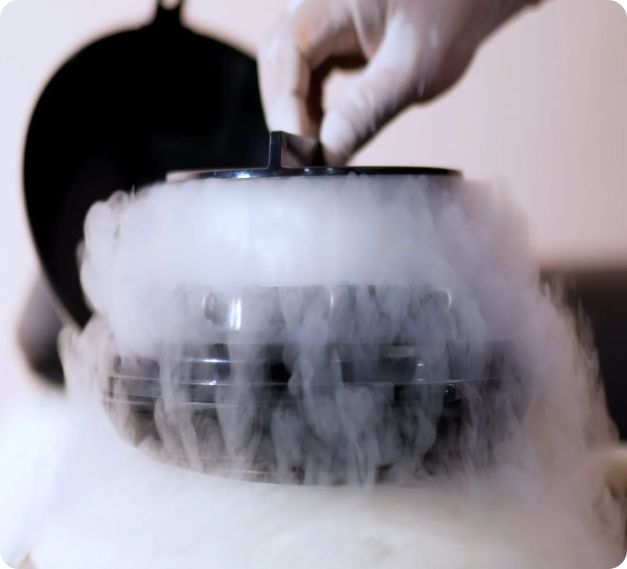
Sperm donation is a process that provides individuals and couples with the opportunity to grow their families through the use of donor sperm.
In Australia, sperm donation is governed by state and federal laws to ensure ethical practices and protect the rights of all parties involved, including the donor, recipient, and future offspring.

Single women and same-sex couples often explore sperm donation as a way to start a family. It empowers them to conceive without needing a male partner.
Sperm donation might also be considered by couples facing challenges with male infertility. If the male partner has issues like low sperm count or quality, using donor sperm can provide a way for them to conceive.

When it comes to sperm donation, there are specific eligibility criteria and screening processes in place to ensure that the sperm is safe and healthy.
To be a sperm donor, you typically need to be between the ages of 18 and 40. This age range helps ensure that the sperm is more likely to be healthy and viable for use in fertility treatments.
Donors undergo thorough medical and genetic screening to ensure the safety and suitability of their donation:
Recipients also undergo a series of medical evaluations to ensure they are physically prepared for treatment. Routine fertility investigations assess reproductive health and a pelvic ultrasound evaluates the uterus and ovaries for readiness to conceive.

The first step is finding a suitable donor. This could be someone you know (family or friends) or sourced via a sperm bank. The Geneadonor coordinators can give you access to local donor gametes but also international sperm banks if needed.
It’s important to consider what qualities you’re looking for in a donor, such as physical traits, ethnicity, and educational background. Whilst donor sources from a registry are de-identified initially, their details are accessible to offspring once they reach 18 years of age. This is in line with the current donor registry regulations.
For additional details about the donor process and legal regulations, visit:
Once you’ve identified potential donors, they must go through a thorough screening process. This includes medical history evaluations, physical examinations, and testing for infectious diseases and genetic conditions. Only donors who meet strict health criteria are selected.
Under current NSW law, sperm donors don't have any legal or financial obligation to (or responsibility over) a child born from their donation. That child is deemed to be the child of the recipient(s), who become their parents.
Once a child conceived using donated sperm turns 18, they can access certain identifying information on the donor if they wish.
Notably, it's illegal to take any payment for sperm donation in Australian law.

Sperm collection usually takes place at a fertility clinic or sperm bank, where the donor provides a sample. This is done in a private setting for comfort and confidentiality.
Once the sperm is collected and screened, it can be used for fertilisation. There are two main methods that are used for using the donor sperm:

Each sperm donor profile gives you a snapshot of their background and characteristics.
You can expect to see basic details like the donor’s age, height, weight, and physical appearance. There is usually information about their ethnicity and family health history, as well as education, occupation, and hobbies. Health screening results are another important part of the profile.
Some profiles also feature a personal statement from the donor, sharing their reasons for donating and their hopes for the future.

Regardless of your reasoning for looking into Sperm Donation, the most important thing is to ensure that you have all of the information you need to make informed choices when growing your family.
Sperm Donation can feel overwhelming with all of the rules and regulations however, be reassured that I have extensive experience with Donor Gamates in Sydney and can guide you to a fertility path that works for you. We also have direct access to the Gerna Sperm Banks to ensure that you have timely access to sperm donors when needed.
Sperm donation involves a donor providing sperm for use in fertility treatments such as IUI or IVF to help individuals or couples conceive.
Using donor sperm allows individuals or couples facing male infertility, same-sex couples, or single parents to achieve pregnancy.
Donors can be selected through fertility clinics or sperm banks based on genetic history, physical traits, and personal background.
The process includes medical and genetic screening of the donor, selection of sperm, and fertility treatments such as intrauterine insemination (IUI) or IVF.
Donors undergo extensive health, genetic, and psychological screening to ensure suitability.
Success rates depend on various factors, including the age and fertility health of the recipient and the method used (IUI vs. IVF).
In Australia, sperm donors have no legal parental rights, and strict regulations ensure transparency and informed consent.
Costs vary but typically range between $1,000 and $5,000, depending on the clinic and fertility treatment used.
Heterosexual couples, same-sex couples, and single individuals can all access donor sperm services.
Donors go through medical, genetic, and psychological testing to ensure they are healthy and suitable.
Understanding the emotional journey couples endure when they have difficulty conceiving or recurrent pregnancy loss is essential to my approach.
Creative Advertising by Kiin Agency.